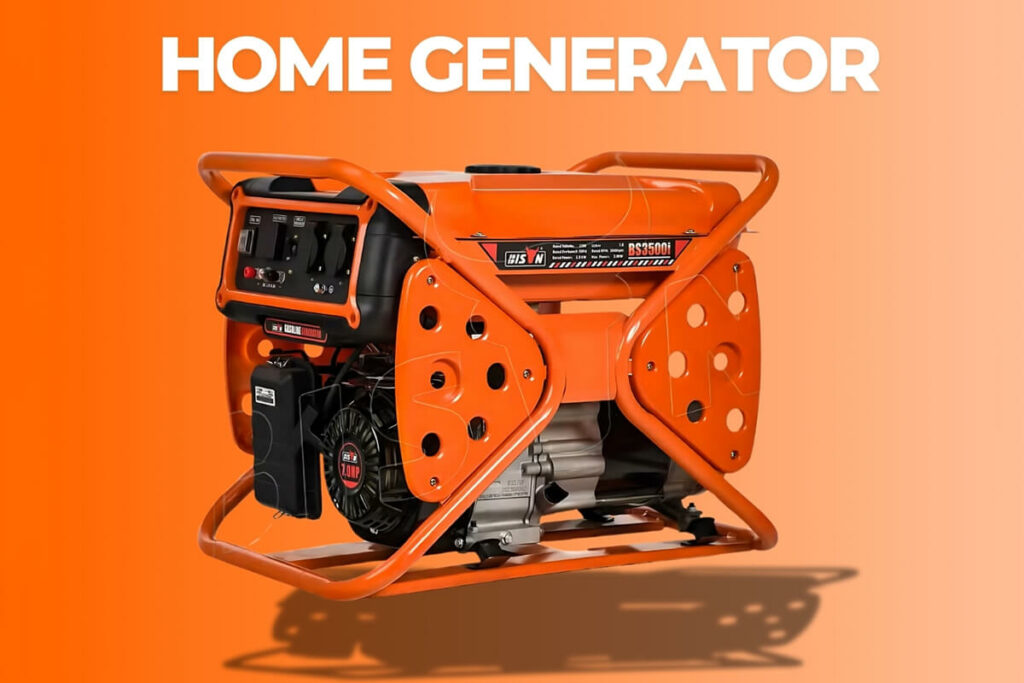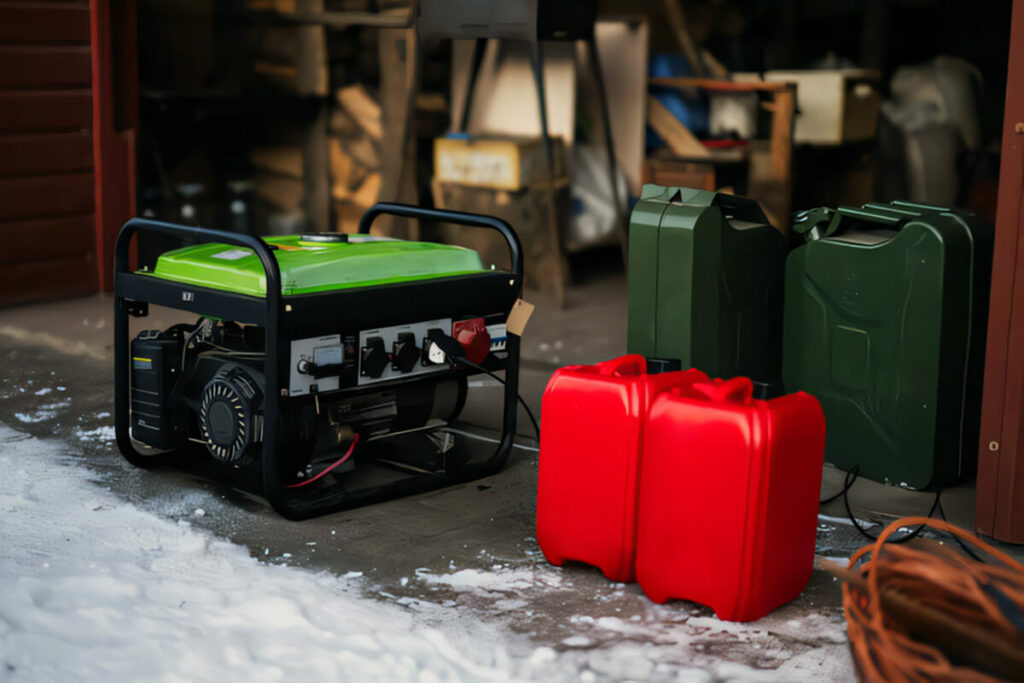home generators manufacturers & suppliers
Keep the house running. BISON home generators provide reliable performance and efficient energy for modern life. A variety of design styles are available.

power life from here
power life from here
why choose
BISON home generator
why choose
BISON home generator

advanced alternator technology
BISON household engines provide stable power output and significant fuel savings, ensuring long-term operation to meet your family’s critical needs.

optimized power delivery
With optimized electrical control, BISON home generators provide stable, clean electricity—ideal for powering sensitive home appliances and electronics.

Every home generator is assembled using carefully selected components that meet rigorous quality standards for residential backup power applications.
sustainable solutions
sustainable solutions
frequently asked questions
frequently asked questions
How can I prevent the risk of carbon monoxide?
Operate generators outdoors only—never in enclosed spaces like garages or basements.
Keep at least 20 feet away from windows, doors, and vents.
Install CO detectors inside your home, especially near bedrooms.
Follow the manufacturer’s instructions for any exhaust extensions to direct fumes away safely.
Can I convert an air-cooled generator to a water-cooled one?
Yes, but you’ll need to take appropriate protective measures.
- Storms/rain: Use a generator canopy or tent to keep the unit dry and raised off the ground.
- Heatwaves: ensure good ventilation, keep it shaded, and watch for overheating.
- Cold weather: use winter-grade fuel, check oil viscosity, and consider cold-weather kits for easier startup.
How to maintain a home generator?
- Oil changes: Change the oil after the first 20–30 hours, then every 50–100 hours or annually. Fresh oil protects the engine and ensures smooth operation.
- Air filter replacement: Check every 25 hours and replace every 100 hours or yearly to maintain airflow and efficiency.
- Fuel filter and spark plug: Inspect and replace as recommended, typically every 100–200 hours.
- Battery checks (for standby models): Test monthly and replace every 2–3 years for reliable automatic startup.
Follow your model’s user manual for exact intervals to keep the generator running at peak performance.
home generator guide
home generator guide
In today’s world, reliable power isn’t a luxury—it’s a necessity. Power outages, whether caused by severe weather, grid failures, or unexpected emergencies, can disrupt daily life in an instant. Air conditioning, lights, and refrigerators can remind us how much we rely on electricity, and that’s when a home generator comes in handy.
At BISON, we provide high-quality home generators designed to keep your home running smoothly during outages. With our reliable backup power solutions, you can protect your home, stay comfortable, and enjoy peace of mind no matter what happens. In this guide, we’ll look at why backup power is becoming so essential, what home generators are, and why more homeowners are turning to them as a practical, dependable solution.

Why consider a BISON home generator?
Reliability during power outages
A BISON home generator with an automatic start and transfer system ensures uninterrupted power. When the grid fails, the transfer switch detects the outage and automatically shifts power to the generator—keeping lights, appliances, and essential systems running without delay. This is useful in areas that experience frequent power outages or are subject to natural disasters such as hurricanes, tornadoes, or blizzards.
Safety and security
Power outages can disable security systems, cameras, and alarms, leaving your home vulnerable. A BISON home generator ensures these systems continue running, protecting your property and loved ones. For those with medical devices that require continuous power—such as oxygen concentrators, CPAP machines, or refrigerated medication—a home generator is not just a convenience but a safety necessity.
Durability and performance
High-quality home generators, like those from BISON, are built with sturdy, weather-resistant materials designed to handle extreme conditions. This durability ensures long-lasting performance and reliability regardless of the climate.
Protecting electronics and appliances
Sudden outages and power surges can damage sensitive electronics and appliances. A BISON home generator provides steady, reliable power, protecting equipment like computers, televisions, and home theater systems from costly damage.
Cost savings and property value
While a home generator requires an initial investment, it helps you avoid losses from spoiled food, emergency expenses, and medical disruptions during outages. Plus, having a backup power system can increase your home’s value, as buyers often look for properties with reliable power solutions—especially in areas where outages are common.
Types of home generators
Below are the three main types of home generators, along with their features, pros, and cons.
| Feature | Portable home generators | Standby home generators | Inverter home generators |
| Best for | Small appliances, lights, refrigerators, and other essentials during short power outages or for outdoor activities like camping | Permanent whole-home backup power with automatic operation during outages | Powering sensitive electronics like laptops, medical devices, and phones with clean, stable power |
| Power source | Usually gasoline, though some models use propane or dual-fuel options | Natural gas, propane, or diesel (natural gas is most common) | Gasoline (typically) |
| Power capacity | 1,000 to 10,000 watts | 7,500 to 50,000 watts | 1,000 to 4,000 watts |
| Runtime | 6–12 hours on a full tank | Indefinite (as long as fuel supply is constant) | Longer than regular portable models due to fuel efficiency |
| Pros | •Affordable and cost-effective •Portable and easy to transport/store •Quick setup | •Automatic operation (no manual startup) •High capacity (powers entire home including HVAC) •Long runtime without frequent refueling | • Clean power safe for delicate electronics •Fuel efficient •Quiet operation •Quick setup, minimal installation |
| Cons | • Limited power (can’t power entire home) •Noisier operation •Needs regular refueling | • Higher equipment and installation costs •Requires professional setup T•akes up permanent space on property | • Lower output (not ideal for large homes) •Higher upfront price than regular portable generators |
Key factors to consider when choosing a home generator
Power needs
The first step is determining how much power you actually need. Start by listing all the appliances and devices you want to keep running during an outage, along with their wattage requirements. Essential items like lights, refrigerators, and medical devices should be prioritized first, while non-essential items can be added if power capacity allows.
Typically, a home needs around 5,000–7,500 watts to keep basic appliances running, while larger homes with heavy power demands may require 10,000 watts or more.
Fuel types
- Gasoline: It is readily available and affordable, but has a short shelf life (about six months) and is volatile, making it difficult to store safely.
- Propane: Cleaner burning, no shelf life restrictions, quieter, and emits fewer emissions, but requires additional space for a propane tank.
- Natural gas: Natural gas lines require professional installation. Natural gas is ideal for homes with existing natural gas lines. In these cases, natural gas is an affordable and environmentally friendly option.
- Diesel: Diesel generators are efficient and durable, making them suitable for heavy-duty or long-term use. Diesel generators are generally larger and may be a good choice for properties with larger power needs. However, equipment costs may be higher.
Budget
- Initial cost: Portable generators are generally the most affordable. Standby generators cost more due to the generator itself, professional installation, and transfer switch requirements.
- Fuel costs: Fuel prices vary depending on the type you choose—natural gas tends to be more cost-effective long-term, while propane and gasoline may cost more.
- Maintenance costs: Regular maintenance like oil changes, air filter replacements, and inspections should be factored in. Standby generators may require higher maintenance due to their complexity.
Noise level
Check the generator’s decibel rating before making a decision, and choose one that will cause the least disruption. Here’s a quick comparison:
- Portable generators: 70–80 dB (like a lawnmower).
- Standby generators: 60–70 dB (similar to a vacuum cleaner).
- Inverter generators: 50–60 dB (quieter, suitable for residential areas and camping).
Safety features
Safety is critical. Look for models with:
- Overload protection: Prevents generator damage from excessive load.
- Low oil shutoff: Shuts down the engine automatically if oil levels are too low.
- Carbon monoxide detection: Turns off the generator if CO levels become dangerous.
Local regulations and safety codes
Check local building codes and regulations before installing a generator. Some areas require permits for standby units and have rules for placement, fuel storage, and safe distances from buildings, windows, or vents.

Power up your home with confidence
Choosing the right home generator ensures long-term comfort, security, and peace of mind. As BISON’s covered, key factors include understanding your power needs, selecting the best fuel type, considering your budget, and ensuring essential safety features are in place.
As a professional generator manufacturer in China, BISON offers expert guidance and a wide range of dependable home generators designed to meet diverse needs. Whether you’re looking for expert advice, bulk purchases, or designing a custom home generator, BISON has you covered.
Contact us today to start a business partnership and import BISON’s high-quality home generators from China, and take your sales and customer reputation to the next level!














